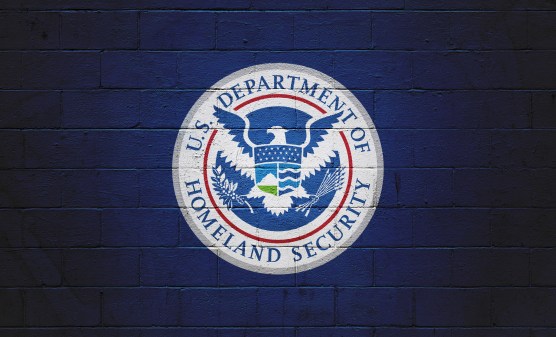 Department of Justice EOIR CTO Ajay Budhraja
Department of Justice EOIR CTO Ajay BudhrajaAjay Budhraja, chief technology officer at the Department of Justice’s EOIR, recently sat down with FedScoop and shared his thoughts on federal government technology and what he’s working on.
Budhraja has more 23 years in information technology with experience in areas such as executive leadership, management, project management, enterprise architecture, system architecture, software engineering, training, methodologies, networks and databases. He has a master’s degrees in engineering (computer science) and management and a bachelor’s in engineering. He is a project management professional certified by the Project Management Institute and is also CICM, CSM, ECM (AIIM) Master, SOA, RUP, SEI-CMMI, ITIL-F, Security + certified.
What major programs have you worked on?
Over the years, I have worked on enterprise shared services, virtualization, business intelligence, cloud technology programs to realize significant cost savings and reduce redundancy. I have provided senior executive leadership for nationwide and global programs and have led the implementation of integrated enterprise information technology solutions. As part of my experience, I have worked for several government agencies and for many areas in the private sector.
I have worked extensively in the telecommunications area to lead large, nationwide mobile application and portal rollouts that included mobile platforms, applications, services and integration mechanisms. I have also worked extensively in the areas of application development, infrastructure development, networks, security and have contributed significantly in the areas of enterprise and business transformation, strategic planning, change management, technology innovation, performance management, agile management and development, service oriented architecture, cloud, big data and mobility.
What technology trends are you seeing in the federal government?
The federal government has been moving to the cloud and leadership will focus more on the business services development since traditional technology IT services will be encapsulated in the cloud. There will be greater emphasis on the delivery of multiple services as composite services and the metrics driven consumption of services. With the proliferation of smart phones, tablets and mobile devices, mobile computing will be an area that will be explored further and will be leveraged with shared services and cloud. Vendors are now cloud enabling their applications not just for traditional access but also for mobile access since with 4G services, there is lower latency and better data storage capacity.
Social business and collaboration will continue to develop further to enhance productivity and interaction. There will be continued focus on shared services and greater adoption and integration in areas such as big data, cloud, mobility, business intelligence and analytics. Federal IT policies should continue to support the effective management of such technologies. Initial cloud adoption in the government has been in the areas of email, collaboration, development or test environments, backup and new applications.
Open source will be explored further as part of technology initiatives and identity management across agencies as trusted partners will facilitate better management and secure sharing of digital identities. In addition, there has to be a continued focus on innovative sescurity and privacy mechanisms as part of the initiatives. These technologies should support cost saving initiatives across the government.
What are the major impacts of cloud?
Cloud is a major shift from technology services development to business services development. Traditional technology services are being encapsulated in the cloud, so information technology management can focus on business services development and related aspects to strategize and execute at a higher level.
Cloud facilitates rapid deployments due to quick availability of scalable services and can enhance productivity by providing the infrastructure or application platforms and related tools faster. I have seen applications that traditionally would take months or longer to deploy, being rolled out in several weeks due to the cloud and new environments being set up very quickly. The key is to carefully assess existing capabilities and focus on service and process integration.
How can mobility, cloud, virtualization and big data work effectively?
Big data is increasing so fast, it is just like drinking from a fire hose since unstructured and heterogeneous data needs proper processing and storage. Big data is truly a nightmare, and it is important to effectively manage such data. Cloud and virtualization support big data since they can provide the storage and processing capabilities to handle such information. Cloud can also aid in analytics based on tools that can support the analysis and reporting of information. In the mobility area, having enough wireless bandwidth has been an issue and there are challenges such as integrated management, security and interoperability.
For all these technologies to work effectively, enterprise platforms should be developed that focus on integrated life-cycle management and expeditious deployment mechanisms. Government agencies should continue to collaborate to collectively develop secure integrated solutions that leverage such platforms.
What are the key areas of focus moving forward?
“Ajay’s 5-point plan” recommendation moving forward:
- Blueprint first – Create a technology blueprint with the strategy and vision, and then incorporate supporting technologies since one shoe size doesn’t fit all
- Focus on innovation, agility and effectively manage technology areas such as cloud, virtualization, shared services, big data and mobility
- Realize cost savings through prioritization, reuse and technology reviews
- Ensure technology alignment with federal directives and agency goals, also conduct continuous monitoring of results
- Focus on enterprise-wide integrated and standardized solutions with effective governance and change management






